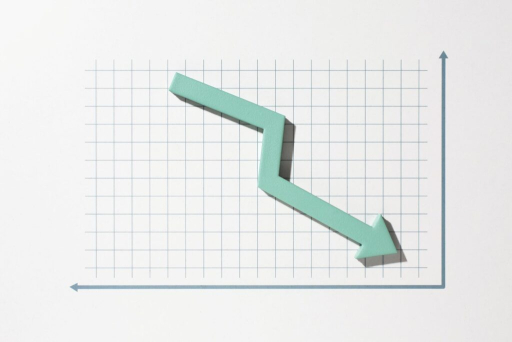
Blog: finance and real estate made simple
Articles and insights to help you navigate and grow
How You Can Lose Up to CZK 100,000 Even If Mortgage Rates Are Falling

The choice of a mortgage interest rate fixation is considered not only when taking out a new mortgage but also at the anniversary of the fixation. According to statements from several banks, next year every tenth client will have their mortgage fixation ending in 2023.
Next year, interest rates are expected to decline, as indicated in the Czech National Bank’s own forecast, which presents this as the most likely scenario. Therefore, it seems logical to choose a shorter rate fixation, for example, 1 or 2 years, and wait for the next fixation period, when rates should have already dropped. Choosing a longer fixation of 5, 7, or 10 years may not seem as advantageous at first glance.
Let’s look at a typical situation for most clients who are receiving, or will next year receive, offers for mortgage rates from their banks for the next fixation period.
Typically, offers for short-term fixations (1 or 2 years) range from 6.99% – 7.59% p.a., and for long-term fixations (5, 7, 8, 10 years) range from 5.69% – 6.29% p.a.
For an average mortgage of CZK 3,500,000 (€140,000) with a term of 25 years, the monthly payment would be:
-
7.29% = 25,389 CZK (€1,016)
-
5.89% = 22,316 CZK (€893)
At a model rate of 4% p.a., which might occur in the coming years, the monthly payment would be 18,474 CZK (€739).
For some, it seems better to pay slightly more now with the prospect of securing a lower rate in a year or two, which can then be fixed for a longer period.
A key piece of information is the current interpretation of the law and the practice of mortgage banks regarding extraordinary payments during the fixation period.
Practically all banks allow extra payments for mortgages concluded after December 2016, or mortgages that had a refixation after December 2016 (which is nearly all clients) for a one-time administrative fee of approximately CZK 800–1,000 (€32–40). This will remain until the new legislation, expected in 2023/2024, comes into effect. There are only two exceptions among banks, but even with those, we know how to ensure clients have equal access. The new law will likely be unpopular and may undergo several rounds of consultation. We are thus possibly talking about 2024, when fair rules for extra payments in the client–bank relationship should apply.
Because of this, most banks are willing to lower rates even during the fixation period to prevent the client from refinancing elsewhere. This option is not contractually guaranteed, and bank policies may change. It will certainly change once the new legislation comes into effect.
In light of this information, a shorter fixation at a higher interest rate may be disadvantageous. The difference in monthly payments—7.29% = 25,389 CZK (€1,016) and 5.89% = 22,316 CZK (€893)—is 3,073 CZK (€123), which over 24 months amounts to 73,752 CZK (€2,950).
The difference in interest paid is even greater:
-
Interest paid over 2 years at 5.89% = 405,084 CZK (€16,203)
-
Interest paid over 2 years at 7.29% = 503,064 CZK (€20,123)
That’s roughly 100,000 CZK (€4,000) that the client unnecessarily pays if they do not have complete information about the Czech mortgage market.
We help clients both when negotiating with their current bank—where staying with the same bank is administratively easiest—and with potential refinancing if it proves advantageous.
What Can Refinancing Bring to the Client?
-
Reduction of interest rate: We compare offers from all mortgage banks and calculate total costs. Refinancing for a difference of just 0.1% usually does not make sense unless there are other reasons.
-
Increase of the mortgage loan: Most people need or want to invest additional funds into their property during repayment (renovation, repairs, heat pumps, solar panels). Refinancing allows for increasing the mortgage; the current bank will not increase the existing mortgage without a new application.
-
Other mortgage adjustments: After the fixation period ends, it is also worth considering the overall loan setup. You can change the repayment term (shorten or extend), make extraordinary repayments without penalties, or consider a new fixation period.
-
Life insurance is also an important mortgage component, which may be advantageous to arrange through the bank for some, or separately via an insurance company for others.
-
Change or adjustments to pledged property
-
Change of loan participants
The model example of choosing mortgage fixation may not be suitable for everyone. It depends on the individual situation, so do not hesitate to consult your advisor. We are happy to review your life situation with you to help save money.
Note: Amounts in CZK were converted to EUR at a fixed exchange rate of 25 CZK = 1 EUR.
Stone & belter blog
Similar articles
Category















